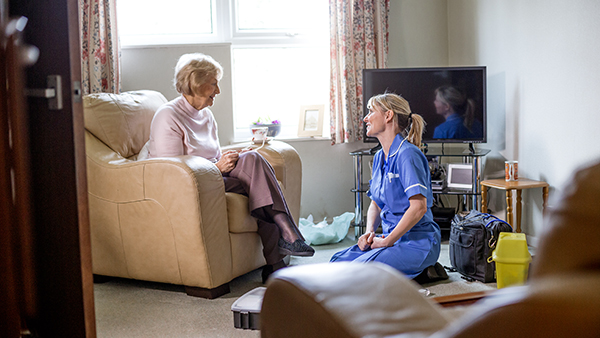As England emerges hesitantly from lockdown and policymakers’ eyes are glued on the daily infection rates and the spikes seen across Europe, decision-makers in charge of our national response and those who are delivering health and care services locally are looking towards ‘recovery’. Matthew Swindells explores what this means and argues for a new compact between national and local services, which is clearer about central standards but allows for greater local innovation and responsiveness.
For the NHS, recovery is defined in the ‘Phase 3’ planning letter issued by NHS England on 31 July, with an emphasis on reopening cancer, diagnostic and surgery services, treating those waiting the longest for surgery and restoring primary, community and mental health services whilst preparing for winter. For the nation, though, recovery also means designing a health and care system that has learned from the challenge of the pandemic and built inclusivity and resilience into everything it does going forwards.
Presenting health and care as one service for the patient
When the pandemic came, the NHS responded brilliantly in creating capacity to take new patients, expanding its intensive care and ventilator facilities and opening Nightingale hospitals to cope with the anticipated number of patients. But, as hospitals contained the surge of Covid-19 patients, crises were bubbling in other parts of the system. Nursing and care homes, which didn’t have the investment, supply chain support or expertise to respond like hospitals, saw tragic numbers of deaths, with almost 30,000 excess deaths by early July, 20,000 of them attributed to Covid-19. Elements of homecare were reduced for vulnerable children and adults to reduce the risk of spreading infections, the Association of Directors of Children's Services said to the BBC in May that limited access to some children during the pandemic could mean abuse, neglect or harm are going on behind closed doors. And the hidden trauma of loneliness and isolation grew for from individuals unable to see their friends and loved ones.
The crisis has exposed why it is important to have empowered services that enable people to live a fulfilling life in their communities, as opposed to passively passing through a system. The recovery should involve treating the care sector as a national asset like the NHS, with the same focus and investment in ensuring that it protects the sick and the vulnerable. The extraordinary generosity of ordinary people stepping up to bring food and personal contact to vulnerable and shielding individuals shows the scale of the opportunity to embed services in local communities in a partnership between professional and voluntary services, with citizens helping to shape and deliver the services they experience. And as the NHS reinstates its services, it needs to develop its ability to reach out and support vulnerable people in their own homes and provide medical support to residential and domiciliary care to be better prepared for the next pandemic.
As we think back and remember how the nation came together to stand on our doorsteps applauding NHS staff, workers in care homes, staff in supermarkets, post office and delivery workers, bus drivers and the people who fix your boiler, it has never been clearer that ‘public service’ is not defined by who pays your salary, but by the contribution you make. We have seen heroes across the public and private sector, and we must continue to work together. The design of health and care services in the future must place resiliency at its heart. Outsourcing cannot be a way for public services to wash their hands of responsibility; all actors, be they public or private, must have a stronger sense of partnership around a common mission. Our nation will need to use all of society’s assets to create innovative solutions that reach out to the most vulnerable and place the individual and their family at the heart of services to protect and improve the health of the nation.
Lastly, the right balance of national and local decision-making is necessary to empower innovation along the length and breadth of the country. When a national crisis breaks, the first few days require central command and control to create clarity of direction. Only the government could decide when to take the country into lockdown and pass a Bill in parliament; only the Department of Health and Care could be responsible for forecasting the trajectory of the disease, and only the NHS centrally could change the discharge rules to get hospitals to empty beds across the country. But, as the first wave of the crisis passes and we realise that weeks and months of working differently stretch ahead of us, a balance needs to be found between central control, standards and processes and local relationships, agility and priorities.
As we have seen in both the successes and failures, national and local leadership need to work in partnership if focused clarity is to be supplemented by local expertise. As the NHS and local authorities work ever closer together through the new Integrated Care System partnerships, this local knowledge and expertise needs to be at the core of the national response to avoid the missteps of the first pandemic response. This means enabling local entrepreneurs to support local health and care services without being caught in a national decision-making bottleneck. It involves empowering local public health services to protect their communities by giving them access to the nationally held data they need and ensuring that local health and care services are designed to provide mutual aid in skills and supplies in a way that puts the public not institutions first.
In short, we need a new compact between national and local leadership to standardise and organise nationally where essential but enable local health and care systems to be agile and innovative in making decisions reflective of local conditions within a national framework. This is a moment for the nation to rethink not only how it responds to pandemics, but to reinvent what it means to be a resilient society that can draw on all its talents, to support communities, families, the vulnerable and the isolated.
Matthew Swindells is a healthcare and digital transformation advisor who worked the RSA on the production of Reimagining the future of health and social care, our July 2020 report.
Related articles
-
Care… the work that makes all other work possible
Richard Humphries
Most of us will need care at some point in our ever-longer lives. Richard Humphries argues that it’s time we recognised its importance and legislated and funded it properly
-
An idea worth stealing
Edward Lowe
Watching how software engineers work could revolutionise how we build products and services, and give employees more interesting and fulfilling work. Edward Lowe talks Tesla, Henry Ford and a lesson from the slaughterhouse
-
Local government transformation and change challenges post-Covid-19
Ian Burbidge
How are local government transformation and change leaders balancing short-term concerns with long-term challenges?




Be the first to write a comment
Comments
Please login to post a comment or reply
Don't have an account? Click here to register.